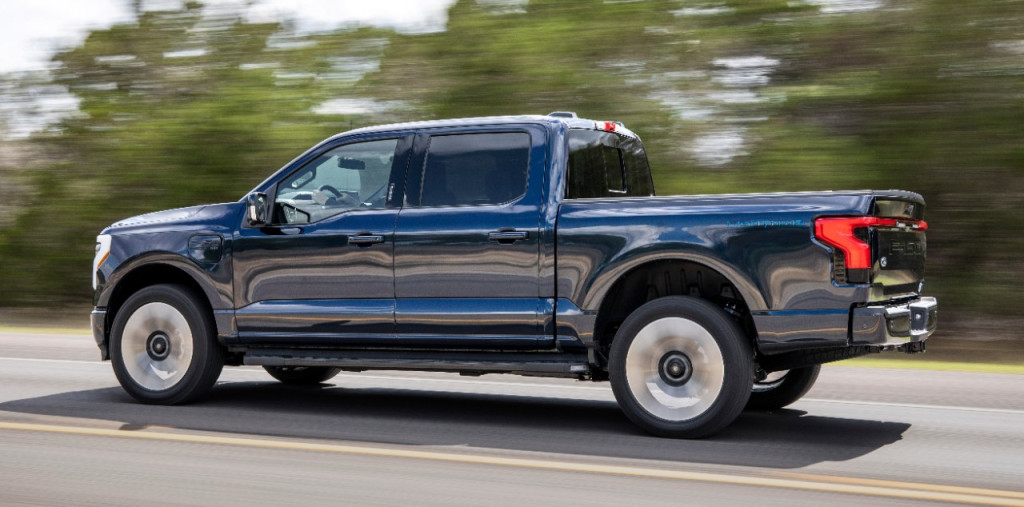Despite having to stop production of its F-150 Lightning in mid-February after one of the electric trucks caught fire outside the factory due to a battery issue, Ford is confident the issue will be resolved and announced on Friday it plans to significantly ramp up production.
The automaker said production of the F-150 Lightning is scheduled to resume on March 13, after which the annual run rate will be ramped up to 150,000 units by the end of 2023, or triple the current run rate.
The automaker only sold 15,617 of the trucks in 2022, but it had 200,000 reservations at the end of 2021 when it stopped taking new reservations. However, Ford has hiked the Lightning's price three times since the initial launch, and many of those reservations were made before the price hikes. The base Lightning is now $57,869, or 38.9% more expensive than when it went on sale.
This is the second time Ford has decided to increase production of the F-150 Lightning, with the automaker originally predicting demand to be about 40,000 units a year when the truck was first shown in May 2021. Ford then doubled its prediction to 80,000 units a year when pre-production got underway the following September.

2023 Ford F-150 Lightning
Increasing production in the auto industry is particularly tricky at this time due to shortages of key components and other transportation bottlenecks. Ford said it is working to increase capacity of components with suppliers, namely SK On, the company that supplies the Lightning's batteries.
Production of the F-150 Lightning is handled at Ford's Rouge plant in Dearborn, Michigan, which has been churning out Ford pickups since 1948.
The Lightning isn't the only Ford EV whose production is being increased. Ford's Mustang Mach-E has also proven a hit with the market. The automaker said on Friday that it has started ramping up production of the crossover at its plant in Cuautitlán, Mexico, and is targeting an annual run rate of 210,000 units by the end of 2023.
Ford also said on Friday that it will add more staff in April at its plant in Kansas City, Missouri, to support increased production of the Transit and E-Transit vans. The automaker is targeting an increase in the combined annual run rate for both vans of 38,000 units by the end of 2023.
